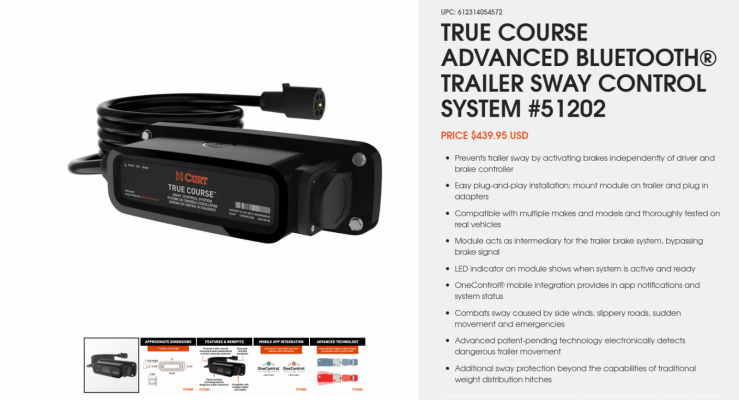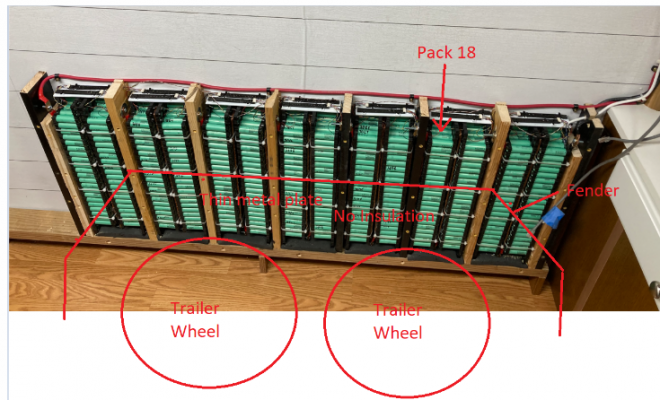At the risk of going on too much - one of the features listed for the 2021 Yukon Denali w/Premium package is "Trailer Sway Control"....
View attachment 408389
Obviously it can't fix 'bad trailer loading' but I wonder how effective this is. And I don't know how to tell if the vehicle actually has this feature. For example, our old vehicle got sway (on same trailer) at ~53mph and the Yukon is ~58mph - so maybe this higher mph is partly due to ~7% additional stability due to this feature?
Interested to understand more about how much this can compensate. Its it more of a minor marketing point or something more.
I ask because I slowed down IMMEDIATELY at the first sign of sway... that 2" back/forth visible in the mirror. Clearly one should not continue driving under this condition. But just for the sake of understanding, would the traction control keep sway from becoming a catastrophic wreck more than I was thinking or was that 2" back/forth in spite of the anti-sway control and as dangerous as I'm thinking?
The best way to stop sway is to apply tension to the hitch. Unfortunately, when excess sway starts (usually from a gust/crosswind or a passing semi) the natural reaction of most folks is to lay off the gas or tap the brakes - both of which do the exact opposite of what is needed.
Proper response to sudden/induced sway is either:
1) Hit the gas - which is completely counterintuitive and against human nature. This goes along with what I taught my kids when something goes wrong - don't panic. Basic OODA loop - observe/think/act. Override your emotion flight/fight response.
2) Apply the trailer brakes using the lever on the brake controller. Again, this has to be practiced/trained/learned behavior and is not a typical human reaction.
One of the things I like about my Tekonsha Prodigy brake controller is the boost feature. Once we're at highway speed I crank up the boost to maximum. This way if I tap my brakes, it applies the trailer brakes much harder than the vehicle brakes to create that needed tension in the hitch to control the sway.
The vehicle manufacturers added that feature once they started offering integrated brake controllers. They're using the already-present stability and yaw sensors to apply the trailer brakes as needed to control sway. However, I would not rely on the feature solely as my only anti-sway countermeasure. I view it as nothing more than an insurance policy, and properly loading/balancing the trailer is still paramount.
On a more macro level - vehicle wheelbase is very important in towing stability. I have a 3/4-ton Suburban and half-ton Sierra crew cab. Obviously I only pull the behemoth with the Suburban. But I also have a 6x12 enclosed single-axle cargo trailer. I usually pull it with the Suburban, but I occasionally pull it with the Sierra. First time I did it was a HUGE eye-opener. The Suburban is 1000 lbs heavier, so one would think it would be the preferred/better tow vehicle. But the Sierra has an 18" longer wheelbase that makes all the difference. Much more smooth and comfortable in the Sierra - much less tail wagging the dog. The difference is frankly night and day.
So coming back around to OP's short-wheelbase Yukon and short-wheelbase trailer - yes, one can understand that the rig is REALLY going to want to sway. Longer moment arms have more rotational/yaw inertia. Short moment arms are going to be twitchy. Think of a tightrope walker - is the balancing pole in their hand long or short? The longer the pole, the better the stability. OP has the opposite, unfortunately.


